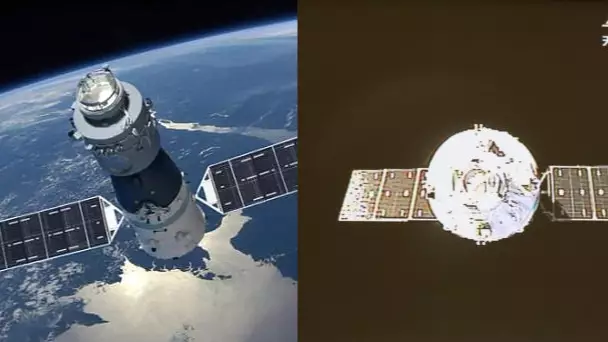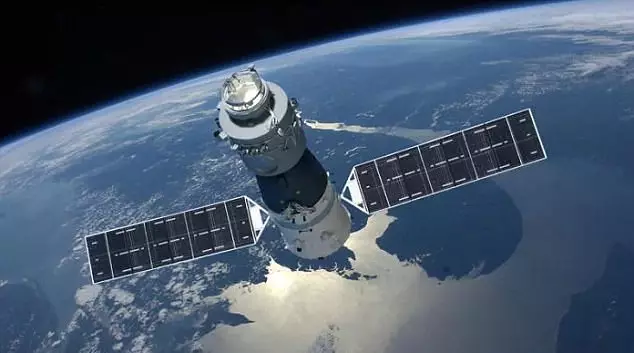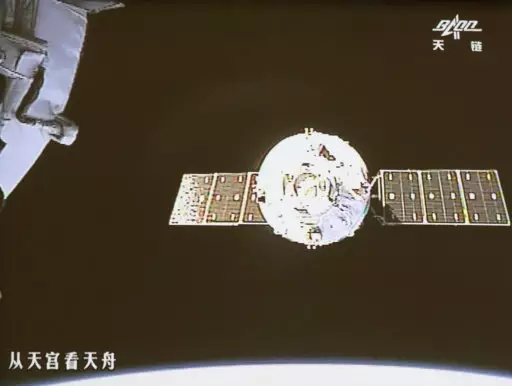
According to reports, some experts believe that an 'out of control' Chinese space station is falling towards Earth.
Harvard astrophysicist Jonathan McDowell told the Guardian that Tiangong 1 is accelerating in its fall and will crash down within a few months, either in late 2017 or early 2018.
The Chinese space agency China National Space Administration (CNSA) lost control of the 8.5 tonne satellite this month, six years after it was launched in 2011, when it was dubbed 'Heavenly Palace'.
Advert
However, as of now, their accuracy only applies to the station hitting Earth, and not where it'll land or exactly when.

Credit: China Manned Space Engineering
"Now that [its] perigee is below 300km and it is in denser atmosphere, the rate of decay is getting higher," McDowell said.
Advert
"I expect it will come down a few months from now - late 2017 or early 2018."
The agency has said it'll keep a close eye on Tiangong 1 and will issue a warning when it's arrival is imminent.
An amateur satellite tracker, Thomas Dorman, told Space.com: "If I am right, China will wait until the last minute to let the world know it has a problem with their space station.
"It could be a real bad day if pieces of this came down in a populated area, but odds are it will land in the ocean or in an unpopulated area."
Advert
The immediate concern, as Dorman says, is that people may be hit by the falling debris.
Many of the station's parts are likely to burn up and disintegrate as it speeds through the atmosphere, which is a small consolation.

Credit: PA
Advert
"You really can't steer these things," McDowell added. "Even a couple of days before it re-enters we probably won't know better than six or seven hours, plus or minus, when it's going to come down.
"Not knowing when it's going to come down translates as not knowing where it's going to come down."
The original aim for Tiangong 1 was to improve China's space exploration, thus growing it as a global super power. The station may well have done that, had it remained stable, as its instruments have reportedly made important investigations.
In a statement in 2014, officials from China Manned Space Engineering (CMSE), said, per the MailOnline: "Tiangong-1 has obtained a great deal of application and science data, which is valuable in mineral resources investigation, ocean and forest application, hydro-logic and ecological environment monitoring, land use, urban thermal environment monitoring and emergency disaster control."
Featured Image Credit: CMSE/PATopics: World News, space, China